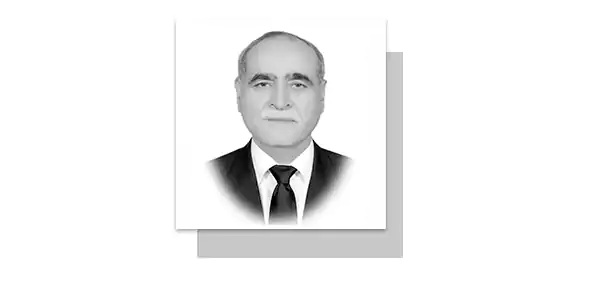THE designation of Ishaq Dar as the Deputy Prime Minister of Pakistan has sparked speculations and curiosity among many, particularly given his proximity to PML-N supremo Mian Nawaz Sharif. However, it is essential to recognize that Dar’s designation is a strategic move, leveraging his vast experience, expertise and long-standing political affiliation with the PML N to steer Pakistan’s economy towards stability and growth. The appointment comes at a time while PM Shehbaz and Dar, along with different ministers, were in Saudi Arabia to attend the World Economic Forum’s (WEF) special meeting on Global Collaboration, Growth and Energy.
Since he assumed office as the Foreign Minister he seemed to have represented the country in diplomatic forums, continuously engaged with other countries and international organizations to have trade agreements and investment opportunities and fostered strategic partnerships to enhance Pakistan’s global standing and access to resources and opportunities. The position of the deputy prime minister varies from country to country and depends on the specific constitutional and political context of each country. However, in general, the Deputy Prime Minister serves as the second-in-command to the Prime Minister and has a significant role in the decision-making and may represent the country at various forums.
Some quarters contend that the position of the Deputy Prime Minister is an anomaly, with no description of power. But, it’s a well-established office, having precedence in a large number of countries which among others include China, UK, Australia, Austria, Canada, Germany, Spain, Italy, Belgium, Russia, Sweden, Singapore, South Korea, New Zealand, Japan, Malaysia and India.
In India, seven distinguished political leaders held the office of Deputy Prime Minister, leaving an indelible mark on India’s political landscape. Sardar Vallahbhai Patel, was the first Indian political stalwart who held this office from 1947-1950. The other six leaders who held this office included Morarji Desai, who later became India’s Prime Minister, Charan Singh, known for taking India’s landmark agrarian reforms, Jagjivan Ram, widely acclaimed in India for his contribution in shaping modern India, Yashwantrao Chavan, popularly known in India as the leader of the common man, Devi Lal and L.K. Advani. Differences aside, all of them were towering political leaders on the Indian political landscape and are widely recognized in India for their substantive contributions.
Ishaq Dar, a seasoned economist and financial expert, has been a key figure in Pakistan’s economic landscape for over three decades. In 1998, when Pakistan suffered a severe economic crisis as a result of the atomic blasts, foreign currency accounts were frozen, the value of the dollar had gone up to Rs 67 and it was feared that it would reach Rs100. In the wake of the crippling economic crisis, the Islamic Development Bank (IDB) had set horrendous terms for a 1.5 billion loan, including mortgages on Pakistan’s major assets. At a time when the economic team at the time had no way out, Senator Ishaq Dar accepted this challenging responsibility at the request of the then Prime Minister Nawaz Sharif and successfully negotiated with the international financial institutions to help Pakistan overcome this economic crisis. Likewise, Dar also played a decisive role in establishing economic transparency in Pakistan.
When he became Minister for Commerce in 1997, he proposed five measures that provided a strong basis for establishing economic transparency at the governmental level in Pakistan. The measures included (i) the abolition of special import-export permits, (ii) the elimination of discretionary powers in textile quotas, (iii) the abolition of the discretionary powers of PM regarding plot allotment, (iv) the abolition of duty-free Mercedes imports and v) the abolition of cash development grants. Now when Ishaq Dar assumes office, the county is in deep economic turmoil having a balance-of-payments crises, high financial deficit, extended inflation, unsustainable debt, low investments and a shrinking economic system in recent years. The coalition governments are always fraught with challenges, with far-reaching implications on political stability. While the deputy Prime Minister enjoys the respect of the allied parties, the close coordination and developing consensus on major policy prescriptions would be one of the major challenges that need to be developed with delicacy and deftness. Good governance is indeed a quite daunting task in the given circumstances. Upholding competent governance, effective administration, transparency and accountability is extremely crucial. Furthermore, policy implementation initiatives aimed toward addressing the socio-financial challenges. This includes collaborating with relevant ministries and stakeholders to formulate powerful techniques for financial boom, social welfare and infrastructure development.
Another significant arena that warrants Dar’s attention is economic management which includes economic governance, overseeing policy implementation, investment strategies to boost the economy and establishing a strong liaison among the ruling stakeholders in the country. Seamless coordination and effective collaboration between various government departments and fostering partnerships with provincial governments and local authorities is direly needed. Engagement with international organizations to leverage resources and expertise can significantly contribute to achieving our desired national goals. Also, meaningful diplomatic engagement with other countries and international organizations is extremely crucial for Pakistan’s development agenda. One could hope that by fulfilling these roles effectively, the newly appointed Deputy Prime Minister can contribute significantly to the development and prosperity of Pakistan, working in tandem with the prime minister and the government as a whole.
—The writer is a Supreme Court lawyer and former member & Chairman Standing Committee of Azad Jammu and Kashmir Council. Islamabad
Email: khaliqwasi786@gmail.com









